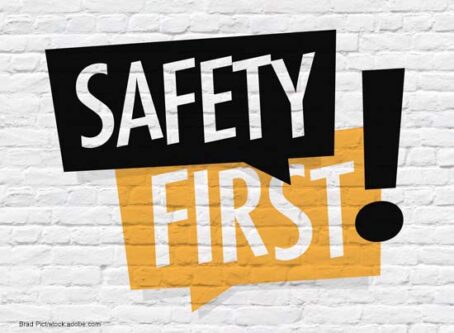FMCSA reveals under-21 pilot program’s underwhelming numbers
A recent report from the Federal Motor Carrier Safety Administration revealed an underwhelming response to the agency’s pilot program for under-21 truck drivers.
As of February, FMCSA’s Safe Driver Apprenticeship Pilot Program had received only 113 applications from motor carriers. Only 34 of those carriers had been fully approved to participate in the program. The agency rejected 38 applications for not meeting the safety qualifications. Another 36 applications met the safety standards but failed to complete registration.
The numbers are especially dismal when you consider that the program launched in 2022 with the goal of accommodating 1,000 motor carriers and 3,000 under-21 drivers.
The pilot program is set to end in July 2025.
The under-21 pilot program was launched based on the premise that there is a shortage of truck drivers. Current regulations require interstate truck drivers to be at least 21 years old. Intrastate drivers can receive their commercial driver’s license at 18.
The Owner-Operator Independent Drivers Association has always refuted claims of a driver shortage. Instead, OOIDA argues there is a driver retention problem caused by low wages and poor working conditions at large fleets. In addition, OOIDA contends that lowering the interstate driving age will only hinder safety.
“For decades, large motor carriers and others have peddled the myth of a ‘driver shortage’ in an effort to find the cheapest labor possible without first addressing longstanding driver turnover problems,” said Jay Grimes, OOIDA’s director of federal affairs. “This turnover makes it challenging to retain drivers and develop a well-trained workforce. The lack of participation in the Safe Driver Apprenticeship Program to this point is another signal that the industry must prioritize driver retention. This includes addressing inadequate pay, poor working conditions, minimal training requirements and truck parking, among other concerns.”
Previous numbers
Although the pilot program’s most recent numbers remain dismal, they were even worse a year ago.
Sen. Cindy Hyde-Smith, R-Miss., said at a Senate subcommittee meeting in March 2023 that there were only four apprentices in the program.
“Although the pilot program is intended to accommodate up to 1,000 carriers and 3,000 enrolled apprentices at any given time, the initial participation data is just alarmingly underwhelming,” Hyde-Smith said. “At the time of the presentation from FMCSA, only 21 carriers had been approved for participation and four apprentices were in the program. One, two, three, four, and we could take up to 3,000.”
Earlier this year, an appropriations bill removed some of the pilot program’s restrictions in hopes of attracting more applicants. The bill removed the requirements of driver-facing cameras and that motor carriers register with the U.S. Department of Labor. LL









